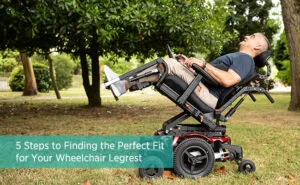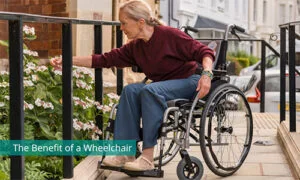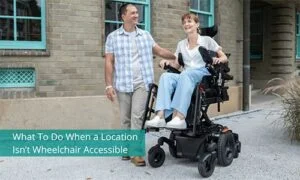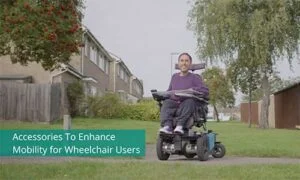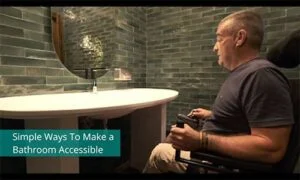The core strength of the wheelchair user will determine the method in which they are transferred to a wheelchair. The methods described are suitable for those with elderly caregivers as they adhere to a “no-lift policy” which means there is strictly no lifting the wheelchair user for wheelchair transfers.
To help categorise the elderly you are working with, you can check out our blog on “Choosing a Folding Wheelchair for a Stroke Patient” which describes each level of physical ability.
How to move elderly who can’t walk from a bed to wheelchair
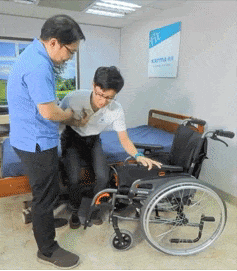
Using a shift belt to help transfer the elderly into a wheelchair means they can save their strength from not having to walk. Source: Karma Medical Taiwan; Karma Academy
How to move elderly who can’t stand from bed to wheelchair
When transferring a person who cannot walk from a bed to a wheelchair, it is essential to use a transfer board and a wheelchair with armrests that can be flipped back.

A transfer board will allow elderly wheelchair users who can’t stand to transfer to the wheelchair with ease. Source: Karma Medical Taiwan; Karma Academy
Summary
The methods described in this blog are designed to accommodate the different levels of the wheelchair user. We don’t want to encourage those who cannot stand to stand-up in order to transfer into a wheelchair. Instead, we designed wheelchairs with features that will aid wheelchair transfer and a method suitable for users and carers alike.
Our other blogs aimed to help care givers include;
How To Transport the Elderly in a Reclining Wheelchair
How To Push the Elderly Over Uneven Ground in a Wheelchair
How To Move the Elderly With Complete Paralysis, From Bed to Wheelchair
Keep Reading

 Global
Global